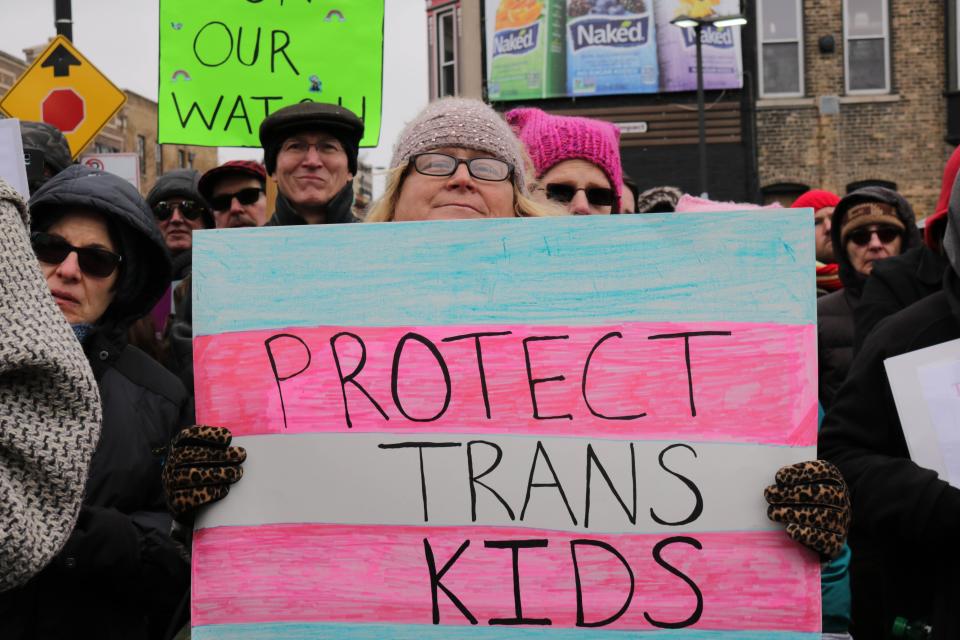Supreme Court declines to weigh in on battle over bathrooms for transgender students
WASHINGTON – The Supreme Court declined Tuesday to decide whether schools can bar transgender students from using a bathroom that reflects their gender identity, leaving in place a lower court ruling that allowed a transgender middle school boy in Indiana to use the boys' bathroom.
"This is a step in the right direction in our ongoing fight to protect LGBTQ+ youth from anti-equality extremism," the Human Rights Campaign said on X, the social media platform formerly known as Twitter.
The case arrived at the Supreme Court against the backdrop of a shifting legal landscape over transgender issues in schools, including disputes that have played out over sports teams and the use of pronouns by teachers. The decision to deny the case represented a victory for LGBTQ+ advocates, though the question probably will eventually return to the Supreme Court.
In the case before the court Tuesday, an Indiana school district wanted the justices to weigh in, arguing schools “desperately need” a final answer to a debate that isn’t going away and has implications for housing rules, athletics and historically sex-segregated organizations.
Lawyers for the Indiana transgender student said the court shouldn’t take the case; the student is now in high school and able to use his preferred restroom.
Kenneth Falk, the legal director of the ACLU of Indiana who represented the student, said the school's policy was "an affront to the freedom of transgender youth to be themselves."
Ruling in favor of the student last year, the Chicago-based U.S. Court of Appeals for the 7th Circuit said it assumed the Supreme Court will step in at some point. Until then, the judges said, they are sticking with the standards they applied in a 2017 ruling that allowed a transgender high school student in Wisconsin to continue using the boys' restroom.
The legal questions in Metropolitan School District of Martinsville v. A.C. were whether bathroom restrictions violate both the Constitution’s equal protection clause and a law the prohibits discrimination at schools that receive federal funding.
The Supreme Court has denied similar cases before. In 2021, the high court chose not to review a ruling from the U.S. Court of Appeals for the 4th Circuit involving a transgender boy named Gavin Grimm. The appeals court ruled that bathroom restrictions at a Virginia school amounted to discrimination.

This article originally appeared on USA TODAY: Supreme Court won't hear Indiana school's transgender bathroom case

